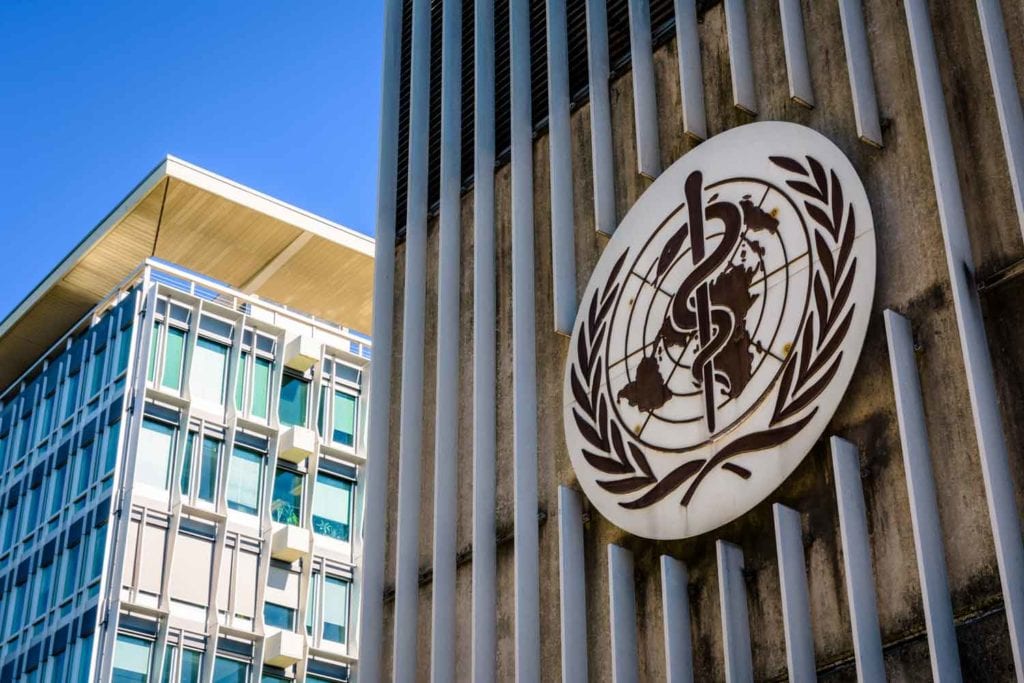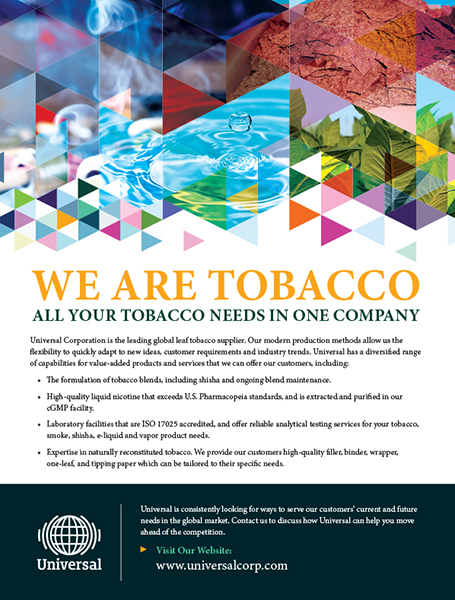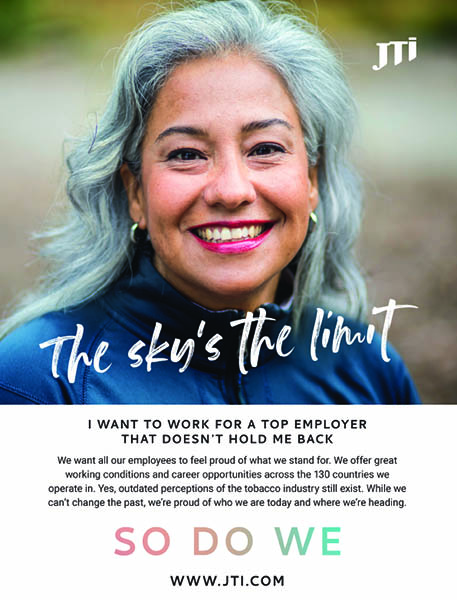
In trying to engineer consumer choices, COP9 delegates persist in their Luddite approach.
By George Gay
A lot of silly comparisons have been drawn between the October/November Conference of the Parties (COP26) to the Framework Convention on Climate Control and the November Conference of the Parties (COP9) to the Framework Convention on Tobacco Control (FCTC). One even had it that the two were of equal importance. No. The first concerned an existential crisis for humanity. The second seemingly dallied with dissonance theory as it examined how a single organization could, at one and the same time, try to stop people smoking while strengthening the supply chains that get cigarettes into their hands. In my view, the difference in importance between the two was such that, given COP26 ended with few firm significant commitments, and, consequently, the earth is set to become uninhabitable by humans, the battle of words waged over COP9 amounted to little more than the proverbial fight between two bald men over a comb.
But others clearly thought differently, so the pressure on the Parties to the FCTC was intense ahead of and during this year’s COP, or as intense as it could have been given the secretive nature of the event. Perhaps the intensity was ramped up because the tobacco harm reduction (THR) deniers at the FCTC, like the climate change deniers, were starting to feel the heat; were starting to show signs that they were coming to realize they had lost or were losing the argument; and because those who support a THR strategy were glimpsing light at the end of the tunnel. Perhaps, too, it was because the Covid-19 pandemic had made people more familiar and comfortable with internet meetings and performances, which enabled THR advocates and consumers to broadcast their side of the argument throughout COP9, while the quit-or-die protagonists and THR deniers at the FCTC, as has become usual, were hunkered down, almost incommunicado—shut off from the infectious ideas and opinions of others, including those whose lives they were attempting to manipulate and control.
It is not without irony that the failures of the WHO in respect of the devastating pandemic led to changes to the COP9 and MOP2 meetings.
Of course, there was some official communication around COP9 as when in August the Convention Secretariat issued a media release blaming the Covid-19 pandemic for the fact that planned face-to-face sessions at The Hague, Netherlands, had had to be ditched in favor of virtual meetings; on Nov. 8–13 in the case of COP9; and on Nov. 15–18 in the case of the Meeting of the Parties (MOP2) to the Protocol to Eliminate Illicit Trade in Tobacco Products. It is not without irony that the failures of the World Health Organization—along with those of many governments, institutions, companies and individuals—in respect of the devastating pandemic led to changes to the COP9 and MOP2 meetings. Perhaps if the WHO had had its eye more on viruses than on tobacco … Oh, never mind. But it is worth noting here that in the same release, the Secretariat announced it had “released the first group of documents…” relating to COP9, because the use of the word “released,” rather than, say, “published,” is instructive as to who seems to be in the driving seat at the FCTC—and it isn’t the Parties.

Influencing Product Choices
Looked at one way, the fighting at and on the fringes of COP9 was over the promotion of different products and methods aimed at influencing the consumer product choices made by smokers who are being told, by those who claim to know best, that they, the smokers, should quit the product they are currently using, even though its consumption is perfectly legal. It makes me wonder how many of those calling for smokers to quit their habit drink alcohol, which is probably, in the West, the most socially destructive legal consumer product available—the only legal consumer product I can think of that dulls the brain when used as intended by manufacturers. Hypocrisy, like alcohol, is legal and is leaned upon heavily.
The fighting is justified by both sides on the grounds that it is over the most efficacious way of getting smokers to quit and thereby adding a few more years to their lives. Whether all smokers want to make this trade-off seems to be seen as of little importance and, in this respect, I would like to applaud Clive Bates for including the following gentle but important reminder in his pre-COP9 published piece “Prohibitionists at Work: How the WHO Damages Public Health Through Hostility to Tobacco Harm Reduction”: “Not everything in life is subordinated to maximizing life expectancy.” Drinkers, of course, will be aware of this.
What we are witnessing is a commercial fight between the purveyors of nicotine-replacement therapy products, which are promoted by the WHO and not discounted by THR supporters, and the purveyors of THR products, which are frowned upon by the WHO.
In reality, and in part, what we are witnessing is a commercial fight between the purveyors of nicotine-replacement therapy products, which are promoted by the WHO and not discounted by THR supporters, and the purveyors of THR products, which are frowned upon by the WHO. But, to my way of thinking, there is a vital difference between the approaches of the two sides. I am not going to go into details here because most of the relevant arguments are already familiar to readers of this magazine and because anybody who wants to refresh their knowledge may visit Bates’ excellent piece. But at its most basic, the difference amounts to the fact that those pushing the THR message are offering less risky and hugely less risky substitute products to those smokers who are considering or who have decided they want to quit smoking highly risky combustibles and have not been able to do so using other methods, while the FCTC is intent on discouraging the use of THR products and, instead, forcing all smokers to quit, largely through pricing them out of the market by encouraging governments to apply unconscionable levels of taxes. Unfortunately, some of those who support THR are not above calling for higher taxes on combustibles or describing tobacco tax hikes as “progress” or “success.”

Sensible Voices
Seemingly, the main item to have emerged from the bureaucratic thicket of the COP9 concerned a decision to launch an investment fund that will offer another source of financial support. “This lays a foundation for financial stability for the future implementation of the WHO FCTC,” a post-conference press note stated. “The fund will complement existing revenue received from Parties through assessed contributions and extra budgetary support.”
I don’t know how this fund will be operated and possibly wouldn’t understand it if I were to be told, but something about the announcement strikes me as important. It seems to me to indicate the Secretariat is perhaps concerned about future contributions from the Parties, and, if this is true, I would say it shows the glimmer of an unusual connection with reality. Sensible voices are starting to be raised. The Philippines’ foreign affairs secretary, Teodoro Locsin Jr., reportedly told the conference that the latest scientific information must be considered in trying to solve the global smoking problem, adding that a balanced and evidence-based approach to safer nicotine products was needed. The Philippines was making progress in moving away from harmful products by introducing products with similar satisfaction but causing far less harm.
At the same time, if the new financial arrangements are predicted to make the FCTC’s star shine brighter in the future, I think the observers are looking through the wrong end of the telescope, unless, at the same time, the FCTC shifts its focus from quit-or-die to harm reduction. The Philippines’ delegation bravely set the scene for a new direction that, if it is not taken, will see the FCTC’s star implode under the weight of its own contradictions. For instance, the U.K. cannot in all conscience turn up in Panama in 2023, where COP10 is scheduled to be held, showing support for a quit-or-die policy while prescribing harm reduction devices at home. And other countries will surely follow this lead. The Secretariat and its allies are defying logic, and it is possible to do that only for so long. I would venture to say their time is running out.
A Healthy Body Securing the Supply Chain
Meanwhile, it surely has to be the case that the three-year-old MOP will collapse even though it, too, is to seek out a new funding stream. The idea that a so-called world health organization is involved in policing the illegal trade in tobacco products again defies logic and seems to hark back to the time when the U.S. Food and Drug Administration seemed to become directly involved (it might still be so involved) in sending underage people into shops to catch retailers selling tobacco products to such people.
It might take a little time for the MOP nonsense to be exposed, of course, because there is unlikely to be any opposition from the tobacco industry. A press note published to coincide with the opening day of MOP2 said, in part, “During this meeting, Parties will discuss a number of issues, including ways of securing the supply chain of tobacco products….” You have to wonder whether this was meant as a joke. An international health organization is bent on securing the supply chain of tobacco products? Really?
Certainly, the MOP is a confused entity, partly because of the hopelessly optimistic goal built into the name of the protocol that it is supposed to oversee. Announcing MOP2, a press note referred in the first two paragraphs to its aims as being eliminating, which is in the name, but also stopping and combatting the illegal trade of tobacco products. I guess such vagueness helps guard against the time that an audit of progress is made.
As far as I could see, MOP2 ended with little more than a few vague promises whose meaninglessness was underscored by the overuse of the word important. “Importantly, MOP2 agreed to strengthen international cooperation to ensure greater assistance between Parties—an important step that is expected to accelerate the adoption of best practices and support the introduction of innovations,” a closing note said. “The Parties also adopted a strategy for mechanisms of assistance and mobilization of financial resources to deepen the implementation of the Protocol.” Hmm.
An international health organization is bent on securing the supply chain of tobacco products? Really?
Having said this, I have some sympathy for the WHO. Once most countries had signed up to the ludicrous idea that a global health organization should become involved through the FCTC in trying, among other things, to engineer consumer choices, it was headed into unfamiliar territory. However, it has only itself to blame for the Luddite approach it has taken in the face of the development of new generation tobacco and nicotine products that are far less risky than are combustible cigarettes and that for many smokers provide a satisfactory substitute for combustibles.
OK, some might argue—in a near-perfect world, but one in which the rights of cigarette smokers were, as usual, pushed to the side—that the WHO might be justified in taking the actions it has. After all, it claims the global prevalence of tobacco use among people 15 years of age and older decreased from 29 percent in 2005 to 22 percent in 2019 and will continue to decrease. Of course, it would be impossible to say why this decrease has occurred, but even if you accept that it is down to FCTC strategies, that doesn’t mean those strategies should be continued exclusively in the future if there are new strategies that can speed things along.
In addition, we are in the grip of a global pandemic, which has, in general, been poorly handled and led to the deaths of millions of people; we are likely to be ravaged by other pandemics because no meaningful preventative measures are being taken; we are facing an existential environmental crisis; and we are dying in ever-increasing numbers from a global pollution pandemic. At such a time, we need the WHO to focus on risks such as these because these are the risks over which people have little or no control. Smoking is a choice.












